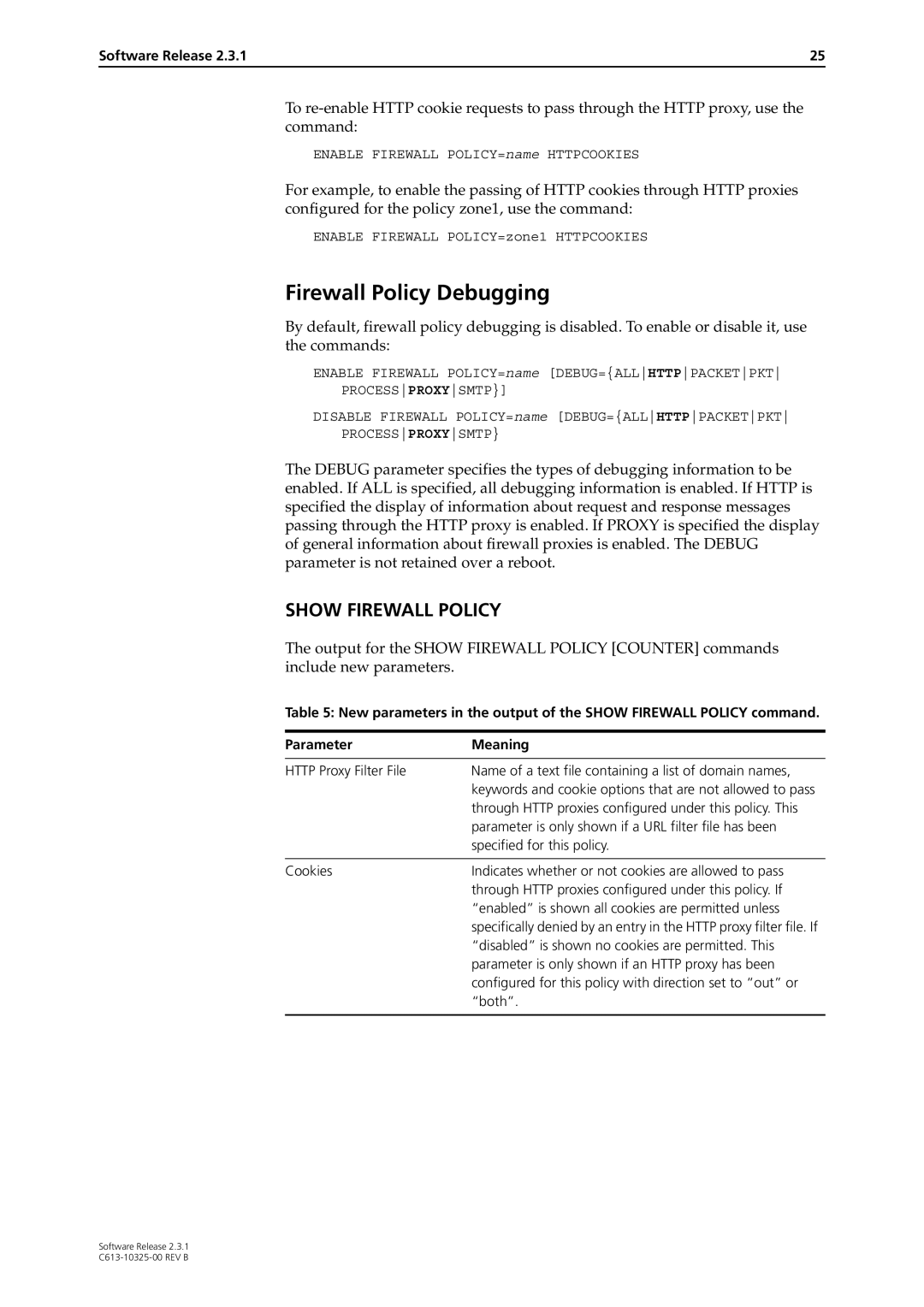Software Release 2.3.1 | 25 |
To
ENABLE FIREWALL POLICY=name HTTPCOOKIES
For example, to enable the passing of HTTP cookies through HTTP proxies configured for the policy zone1, use the command:
ENABLE FIREWALL POLICY=zone1 HTTPCOOKIES
Firewall Policy Debugging
By default, firewall policy debugging is disabled. To enable or disable it, use the commands:
ENABLE FIREWALL POLICY=name [DEBUG={ALLHTTPPACKETPKT
PROCESSPROXYSMTP}]
DISABLE FIREWALL POLICY=name [DEBUG={ALLHTTPPACKETPKT
PROCESSPROXYSMTP}
The DEBUG parameter specifies the types of debugging information to be enabled. If ALL is specified, all debugging information is enabled. If HTTP is specified the display of information about request and response messages passing through the HTTP proxy is enabled. If PROXY is specified the display of general information about firewall proxies is enabled. The DEBUG parameter is not retained over a reboot.
SHOW FIREWALL POLICY
The output for the SHOW FIREWALL POLICY [COUNTER] commands include new parameters.
Table 5: New parameters in the output of the SHOW FIREWALL POLICY command.
Parameter | Meaning |
|
|
HTTP Proxy Filter File | Name of a text file containing a list of domain names, |
| keywords and cookie options that are not allowed to pass |
| through HTTP proxies configured under this policy. This |
| parameter is only shown if a URL filter file has been |
| specified for this policy. |
|
|
Cookies | Indicates whether or not cookies are allowed to pass |
| through HTTP proxies configured under this policy. If |
| “enabled” is shown all cookies are permitted unless |
| specifically denied by an entry in the HTTP proxy filter file. If |
| “disabled” is shown no cookies are permitted. This |
| parameter is only shown if an HTTP proxy has been |
| configured for this policy with direction set to “out” or |
| “both”. |
|
|
Software Release 2.3.1
